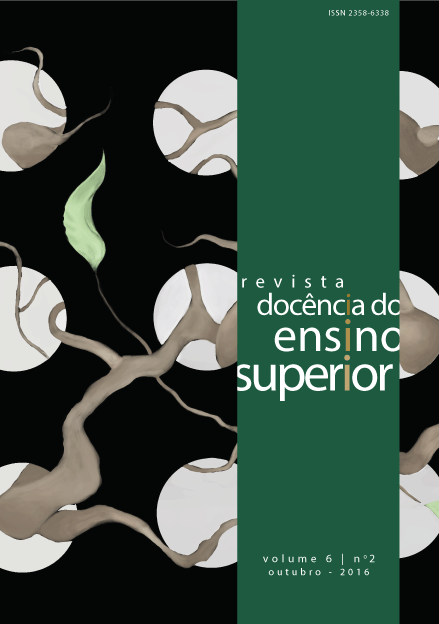Weblog construction in Pharmacy course as a tool for teaching rational use of medicines
DOI:
https://doi.org/10.35699/2237-5864.2016.2104Keywords:
Weblog, Pharmacy, Rational use of medicinesAbstract
Accurate information is determinant to the quality use of medication and decision making in health. Thus, training professionals to interpret scientific evidence on medicines and turn that into easy-access information is fundamental. In this sense, the Centro de Estudos do Medicamento (CEMED) from the School of Pharmacy - Federal University of Minas Gerais (UFMG) promotes formation focusing on the rational use of medicines disseminating information through the Blog do CEMED. Content publication in the weblog relies on the active role of students, who identify sources of information, select topics, prepare, check and post them. The Blog has registered intense consultation access, driven by social networks interactivity. The initiative demonstrates clear need for information in this area and presents as an important pedagogical resource, promoting the development of competencies such as critical evaluation of literature, written communication and teamwork.
Downloads
Downloads
Published
How to Cite
Issue
Section
License
Authors who publish in this journal retain the copyright and grant the journal the right of first publication, with the work simultaneously licensed under the Creative Commons Attribution License which allows the sharing of work with acknowledgment of authorship and initial publication in this journal.
Authors are authorized to take additional contracts separately, for non-exclusive distribution of the version of the work published in this journal (e.g. publish in institutional repository or as a book chapter), with acknowledgment of authorship and initial publication in this journal.
Open access policy:
Revista Docência do Ensino Superior is an Open Access journal, which means that all content is available free of charge, at no cost to the user or their institution. Users may read, download, copy, distribute, print, search, or link to the full texts of the articles, or use them for any other legal purpose, without seeking prior permission from the publisher or author, provided they respect the license to use the Creative Commons used by the journal. This definition of open access is in line with the Budapest Open Access Initiative (BOAI).
























